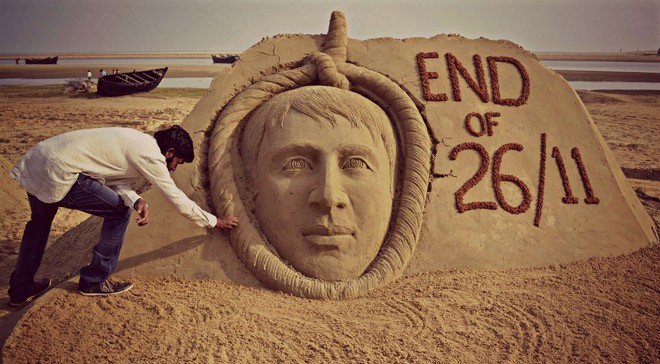

Conspiracy theories are, of course, not exclusive to Pakistan. The Loch Ness monster (Scotland), the ‘Yeti’ (Nepal/Tibet) and ‘flying saucers’ or UFOs (most Western countries) are some examples. In our part of the world, tales about jinns, churails (witches) and the like were a staple of dinner time conversations. In the last few years though, while the internet has revolutionised communication, it has also provided a mega-phone to every crackpot with a crazy conspiracy theory.
Our particular combination of historical, social, and political circumstances have made Pakistan a natural hot bed of all kinds of conspiracy theories, from the marginally credible ("The army is about to take over again!") to the completely lunatic ("Malala was never shot, it was all a ploy by the Indian/Yahoodi lobby to malign Pakistan").
It is difficult to offer a universal explanation for why we Pakistanis are so prone to this kind of rubbish. Even the idea of a ‘Pakistani’ mentality is suspect since we are a diverse nation with many cultures, ethnicities, and traditions. However, one explanation can be sought in the circumstances in which Pakistan came into being. In our national ideology, the one thing that unites us is that we are not ‘them’ (Hindu, non-Muslim, Western, etc.).
Religion was ostensibly the central reason that Pakistan was carved out of the Indian subcontinent. The Quaid-e-Azam had a vision of a Pakistan that was tolerant, pluralistic, and democratic, but, like Israel, another ideological state that came into being around the same time, a nation founded with religion as its central organising principle must accept the unsavory aspects of religion, including its most extreme interpretations.
Since we are not ‘them’ and since we are surrounded (in our minds) by all of ‘them’ (all those irreligious, westernised, shameless, secular, alcohol-drinking, bikini-wearing, pork-eating ‘others’), we tend to feel besieged and terrified. This fear leads naturally into lashing out at all those who are not ‘us’ (and since there is no acceptable definition of ‘us’ because, of course, ‘we’ are also ‘Sunnis’, ‘Shias’, ‘Ahmadis’, ‘Barelvis’, ‘Hanafis’, ‘Wahabis’, etc., it simply worsens our fear of ‘them’). This fear, call it paranoia if you want, makes us uniquely susceptible to all kinds of conspiracy theories.
Fear requires certainty as an antidote. Uncertainty breeds more fear until it builds up into terror which leads to madness if not resolved. For its resolution, we need something solid, something we can see and perceive as reliable, real, and sensible. A conspiracy theory is the perfect solution. There is just enough truth to make it palatable and enough drama to make it interesting, keep us occupied, and keep our minds off our fears.
Many of our fears, of course, are real. Fear of unemployment, of being destitute, of falling ill, and not having the money or resources to get treatment, of not having money to pay for our children’s education. A huge number of us have fears that are even more basic: fear of starvation, of not having a roof over our heads, of not being able to survive.
Some fears are universal to the human condition: fear of being alone, unloved and isolated, fear of death, fear of losing what we hold dear and so on. Most of us have fears that are unique to the times that we are living in: being shot and killed in the street, robbed in our homes or in our cars, being blown up by a suicide bomber, etc. The problem is that these fears are related to political and social issues: inequality, poverty, lack of opportunity, social injustice, bad governance and corruption and none of these things are within the control of any one or even a group of individuals.
So, we seek solace in conspiracy theories. Late at night, sitting at our desks or while on our cell phones, our faces lit up by the glow of the screens, we can safely dive into the cyber world of the weirdest conspiracy theories. Thanks to the internet, we can also meet and interact with people who think like us; yes, the polio eradication campaign really is a way to sterilise women and children; yes, the dengue virus really is a campaign by the Americans to kill Pakistanis, etc, etc. The presence of a ‘virtual’ community who share our craziness reinforces our fears.
And, it’s not just those of us online who are succumbing to this paranoia. All over Pakistan, in teahouses, mosques, schools, colleges and universities, on the roads and in the fields, we are obsessed with conspiracy theories: the Jews, the Hindus, the Freemasons, the Americans, Angels, jinns, and Iblis himself in the shape of ‘Dajjal’ is about to take over and destroy us all.
But it’s okay, the Day of Judgment is at hand and we are all about to be delivered to paradise.
And, in the meantime, while we wallow in this muck, we absolve ourselves of the responsibility of actually doing anything that might bring a change in our condition today, that might require us to turn off that computer, put down that cell phone, finish that cup of tea, and get up and do some work.
So, we talk and talk and write on Facebook and share those cell phone texts that come to us from anonymous strangers and talk some more and at the end of it we feel a little better. Our actual situation is the same, our country and our community, which would benefit from us actually getting off our behinds and doing some real work, is no better off but we feel a little bit better, a little bit less helpless, a little bit more in control. It would be better if we didn’t root around in all this garbage but then what would we do with our time?